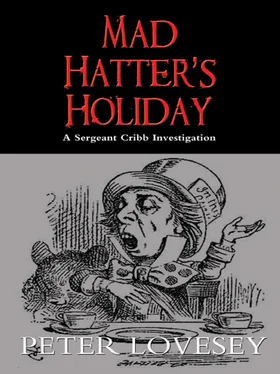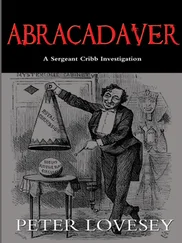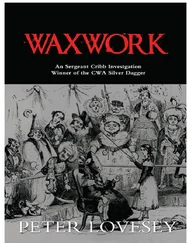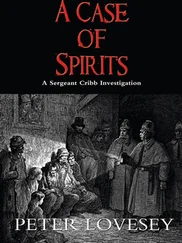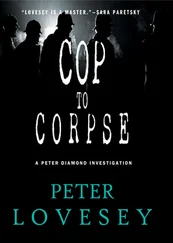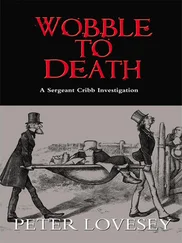Peter Lovesey - Mad Hatter
Здесь есть возможность читать онлайн «Peter Lovesey - Mad Hatter» весь текст электронной книги совершенно бесплатно (целиком полную версию без сокращений). В некоторых случаях можно слушать аудио, скачать через торрент в формате fb2 и присутствует краткое содержание. Жанр: Исторический детектив, на английском языке. Описание произведения, (предисловие) а так же отзывы посетителей доступны на портале библиотеки ЛибКат.
- Название:Mad Hatter
- Автор:
- Жанр:
- Год:неизвестен
- ISBN:нет данных
- Рейтинг книги:3 / 5. Голосов: 1
-
Избранное:Добавить в избранное
- Отзывы:
-
Ваша оценка:
- 60
- 1
- 2
- 3
- 4
- 5
Mad Hatter: краткое содержание, описание и аннотация
Предлагаем к чтению аннотацию, описание, краткое содержание или предисловие (зависит от того, что написал сам автор книги «Mad Hatter»). Если вы не нашли необходимую информацию о книге — напишите в комментариях, мы постараемся отыскать её.
Mad Hatter — читать онлайн бесплатно полную книгу (весь текст) целиком
Ниже представлен текст книги, разбитый по страницам. Система сохранения места последней прочитанной страницы, позволяет с удобством читать онлайн бесплатно книгу «Mad Hatter», без необходимости каждый раз заново искать на чём Вы остановились. Поставьте закладку, и сможете в любой момент перейти на страницу, на которой закончили чтение.
Интервал:
Закладка:
Peter Lovesey
Mad Hatter's Holiday
CHAPTER 1
Brighton this year! Albert Moscrop closed his eyes, drew back his head and sniffed. It was the long, indulgent sniff of a man quite absorbed in the olfactory function.
Ah! There it was, unmistakably. A whiff of sea air among the conflicting odours of the London, Brighton and South Coast Railway. He pressed a sixpence into a porter’s palm.
‘D’you see the green portmanteau there on the luggage rack. Kindly convey it to number fifty, Montpelier Parade, and inform Miss Lyle that Mr. Moscrop intends to pass the day on the promenade and will arrive for tea at four. No, not this one.’ He moved his hand protectively to a small Gladstone bag. ‘I shall require this during the day.’
Yes, by George! If Brighton in September lived up to its reputation he would need the bag. The signs were promising enough. As the train had steamed into the terminus the crowds on the platform were three and four deep. Third class passengers every one; there was no doubt of that. Each group carrying its own luggage and every face lobster-red from the sun. Clerks and shop-assistants and their families returning to the fogs of the Metropolis after a week at the ‘briny.’ They were leaving in hundreds, abandoning the town like an army in retreat, wooden spades and tin buckets in hand. The Brighton of ginger beer and Punch and Judy was being surrendered to a different class of visitor. It was polo at Preston Park and Bernhardt at the Theatre Royal from now on. If you wanted a furnished house in the Royal Crescent the price had jumped overnight to ten guineas a month. The Season had begun.
‘Brighton ‘Erald?’
‘Carry yer bag, mister?’
‘Fetch yer cab, sir?’
Small boys bombarded him at the station entrance. New arrivals were worth pursuing in September. He shook his head emphatically. What could be more Philistine than taking one’s first breath of ozone from a hansom? He set off at a sharp step down the Queen’s Road.
And instantly regretted it. The thoroughfare was lined with public houses of the most dubious kind, the first resort of excursionists when they streamed out of the London trains on Bank Holidays. No gentleman would be seen in such a place. Misspelt postcards, propped at the bottom of windows among dead flies, announced equivocally that rooms with private service were available on request. Winking females reinforced the offer from open casements upstairs.
Odious as the neighbourhood was, Moscrop had made his decision. There was no turning back. He marched down the hill at infantry-pace, eyes concentrated ahead on the convergence of the two sides of the street. Presently, fortitude was rewarded. A wedge of wholesome, glittering blue appeared. By then he was almost as far down as West Street. Salubrious, sea-level Brighton lay ahead.
He did not stop until the sea stretched across the full width of his vision and a fresh breeze ruffled his hair and moustache. He stood at the Esplanade railing listening to the grate of shingle and the cries of children and rediscovering the smell of seaweed. The blood quickened in his veins. He tightened his grip on the Gladstone bag.
The beach below was not crowded by Saturday standards. There were sufficient customers to keep the boatmen and bathing-machine attendants busy, but the real shoulder-to-shoulder occupation of the pebbles was over for 1882. Those remaining were middle-class families for the most part, seated placidly at decent distances from each other, enjoying the air and avoiding the sun under large hats and parasols. A few stone-throwers played ducks and drakes at the water’s edge. The summer spectacle of lines of cockney paddlers, boots suspended from their necks, was over. Anyone venturing into the water now came from a Corporation machine, properly attired in a striped costume.
Moscrop joined the general movement in the direction of the West Pier. In his check suit and bowler he was soon inconspicuous, one of a long parade of freshly-arrived visitors taking that first bracing turn along the prom. The tempo was leisurely, dictated by bath-chairs; the conversation loud and entirely taken up with a social roll-call. Everyone was expected back from Trouville or Baden-Baden this week or next. The Fashionable Visitors’ List Office in East Street had never received so many callers.
He looked about him, among the nodding parasols. Really those resonant accents were deceiving. Three-quarters of his fellow-promenaders had not arrived socially. They strolled determinedly among the elite, scanning the faces approaching from the Hove direction in hopes of someone recognising them. Moscrop preferred to make a detailed observation of those nearest him. Odd how satisfying it was to spot a slightly faded blazer or a fraying hem. Oh, he was no fashion-plate himself, but he had no pretensions of being one. He had a more original reason for taking a promenade.
In recent years he had made a small pastime of mingling with crowds. Often he left his shop in London’s Oxford Street and shambled along the pavement with the throng as far as Marble Arch for the pleasure it gave him. At weekends he liked to visit the Crystal Palace, not to watch fireworks, but to stand among thousands. He thought of Waterloo Station as his club, quite the most congenial place in London. Morning and evening, when the activity there was at its height, he was invariably seated below the clock, reading The Times.
His looks were ideally suited to his hobby. His features were undistinguished in every way. You could not possibly spot him in a crowd. But his face was adaptable to each vagary of fashion. When half London went in for luxuriant Dundreary whiskers, Albert Moscrop’s growth conformed exactly to the ideal. And when in the seventies the cleanshaven face framed under a central parting became high ton, his physiognomy was equal to it. He passed two days at work before anyone noticed the change.
Now, behind the blond moustache and with sidewhiskers scrupulously trimmed level with each ear-lobe, he was all that a man in his forties was required to be. Perhaps he tended to stoop a little when relaxed, but it happened too rarely to be a threat. He was constantly on guard against idiosyncrasies.
There was excitement ahead. Even a few nicely modulated squeals of terror. Knowledgeable promenaders explained to their escorts that the gun-shots they could hear came from a rifle and pistol saloon under the West Pier. Thrills unbounded! Treading the planks of a pier was hair-raising enough, without guns discharging underneath. Moscrop savoured the polite hysteria around him like chalybeate water. He wryly observed that no one actually turned back. Even the faintest hearts were wrapping their gowns across their fronts in readiness for the turnstile.
As he passed inside, he was careful to hold his bag at chest height. Once through, he strode the wooden causeway with a springy step. What better two-pennyworth existed than these three hundred and seventy yards, projecting audaciously across beach and foam and shallows to the deeper waters, indifferent to the power that surged and sucked beneath?
The genius in the design was a revelation. Oh, he had studied his gazetteer conscientiously enough on the way down in the train, read the description of Eusebius Birch’s pier, but it had not prepared him for this. It was a triumph of modern architecture, worthy to stand with Scott’s St. Pancras Station. Such massive stability, refined by the most intricate detail! He moved left for an unimpeded view. The side stretched away towards the pier-head with the neatness of a perspective exercise. Seating was provided along its full extent, the safety railing serving a second function as a back-support. And here Birch’s genius was manifest. The principle of perpendicularity, so fundamental to pier-construction, was abandoned. The railing was bow-shaped. Why? So that a lady could sit against it with comfort and watch the action of the waves beneath her, confident that her posture presented an elegant, undulating line.
Читать дальшеИнтервал:
Закладка:
Похожие книги на «Mad Hatter»
Представляем Вашему вниманию похожие книги на «Mad Hatter» списком для выбора. Мы отобрали схожую по названию и смыслу литературу в надежде предоставить читателям больше вариантов отыскать новые, интересные, ещё непрочитанные произведения.
Обсуждение, отзывы о книге «Mad Hatter» и просто собственные мнения читателей. Оставьте ваши комментарии, напишите, что Вы думаете о произведении, его смысле или главных героях. Укажите что конкретно понравилось, а что нет, и почему Вы так считаете.
